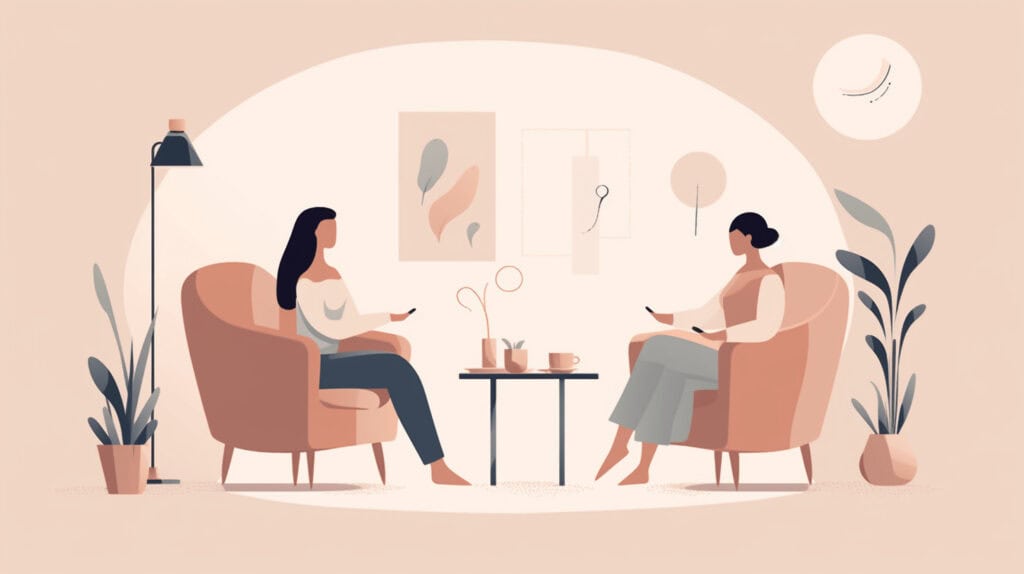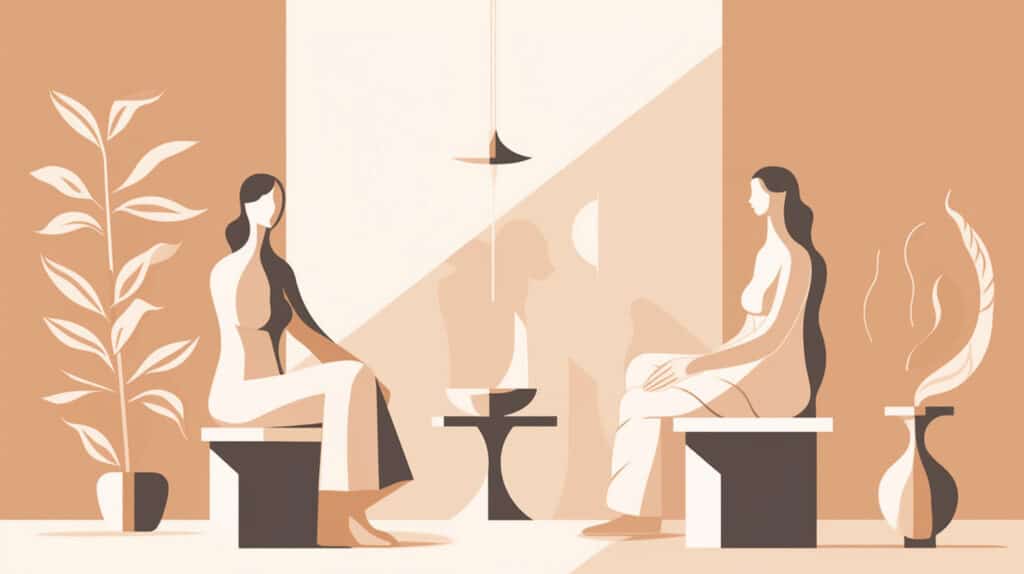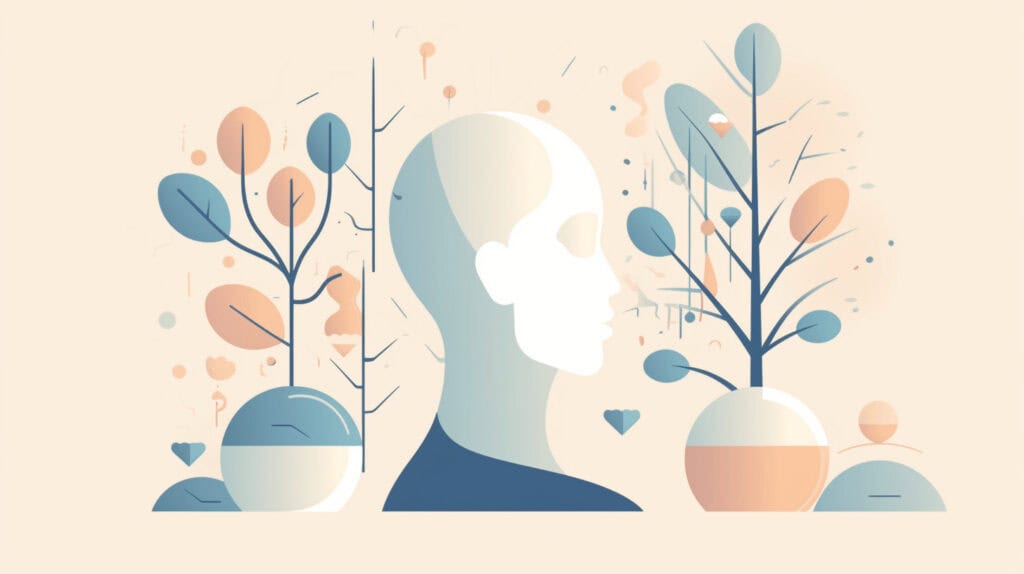When you need therapy, but you don’t have insurance, it can feel like you are facing two crises at once.
Whether you’re grappling with issues related to work, relationships, or general life stressors, the cost of therapy shouldn’t be a barrier to your well-being. If you are feeling anxious about seeking care due to the price, you should know that there are options for affordable therapy without insurance in New York.
From state-sponsored programs to local mental health practices like ours, there are a variety of flexible, low-cost mental health resources available. Continue reading to discover how you can access group and individual therapy services that fit your financial situation right here in New York.
Can You Go to Therapy Without Insurance?
Yes, you can go to therapy even if you don’t have health insurance coverage. Generally, this means you will have to pay out-of-pocket for the cost of each therapy, which can be costly.
However, this shouldn’t deter you, as there are plenty of affordable alternatives available that can help manage these expenses. Both private clinics and public programs offer a variety of cost-effective therapy options accessible to those without insurance.
Now, let’s delve into the different ways you can access affordable therapy without insurance in New York.
How to Get Affordable Therapy without Insurance: Seven Effective Strategies
- 1. Work with a Therapist with Sliding Scale Fees
Many uninsured New Yorkers pay for therapy services using sliding scale fees.
This payment model is designed to be flexible, allowing those with limited financial resources to pay less for care. The fee you pay is tailored to your income level; the lower your income, the less you pay for therapy sessions. - 2. Work with free or low-cost clinics
Numerous nonprofit organizations provide free or donation-based therapy services, which are particularly beneficial for individuals without insurance:
Mount Sinai Student-Run Clinic: Located in Harlem, this clinic offers free mental health services. It is staffed by medical students under the supervision of licensed professionals, ensuring quality care while providing invaluable training for future healthcare providers.
The Institute for Family Health: Operating in both Manhattan and the Bronx, this student-run clinic provides a range of mental health services at minimal to no cost. The services include online therapy options, making it accessible for those who might have transportation barriers or prefer the convenience of remote sessions.
These nonprofit organizations offer individual mental health counseling and are committed to making mental health care accessible to everyone, especially those without insurance. - 3. Use Local Support Groups
Sometimes, sharing your journey with others who understand you can be therapeutic on its own. Support groups or peer support, both online and in person, provide this communal space. These group therapies cover many topics related to mental health issues. They address a wide range of mental health issues, including stress-related disorders, mental illness, substance abuse, and suicide prevention.
- 4. Partner with Community Health Advocates (CHA)
Established in 2010 as New York’s health care consumer assistance program, Community Health Advocates (CHA) has since assisted over 350,000 consumers and small businesses in navigating the complexities of health care services and insurance. This includes helping individuals understand and utilize their health insurance effectively.
- 5. Use Online Therapy
Even if you are uninsured, affordable online therapy options are available, often at lower rates than in-person sessions. Online therapy is especially beneficial if you experience severe anxiety, PTSD or other conditions that make leaving home challenging. It provides a comforting and accessible way to begin therapy in a familiar environment.
- 6. Apply for Medicaid Under the Recently-Expanded Eligibility Requirements
Medicaid provides a wide range of healthcare services at little or no cost. Several types of therapy and governmental health services are covered under Medicaid. The eligibility for Medicaid is primarily determined by family size and income level. The eligibility requirements have recently expanded.
- 7. By Using NY’s Essential Plan to Bridge the Gap
New York’s Essential Plan is an excellent option for those who earn too much to qualify for Medicaid yet find standard health insurance unaffordable. With no monthly premium, this comprehensive plan helps make healthcare costs predictable and affordable by covering essential services, including mental health care.
- 8. Tap into the Employee Assistance Program (EAP)
If you’re still exploring options for affordable therapy without insurance, you should speak to your human resources department. If you are a New York State employee, you may be eligible for mental health services under the Employee Assistance Program (EAP).
How to Get Affordable Therapy without Insurance: Seven Effective Strategies
1. Work with a Therapist with Sliding Scale Fees
Many uninsured New Yorkers pay for therapy services using sliding scale fees.
This payment model is designed to be flexible, allowing those with limited financial resources to pay less for care. The fee you pay is tailored to your income level; the lower your income, the less you pay for therapy sessions.
For example, consider a therapist who normally charges $200 per hour. If your income is at or below 100 percent of the Federal Poverty Level (FPL), you might pay only $50—this is the reduced rate set by the therapist’s sliding scale. Conversely, if your income exceeds the FPL, your payment would increase incrementally, depending on how much higher your income is relative to the FPL.
This approach makes psychotherapy more affordable than many people anticipate, particularly for those worried about high upfront costs. Therapists who adopt this model are committed to ensuring that mental health support is accessible to everyone, regardless of their financial situation.

2. Work with free or low-cost clinics
Numerous nonprofit organizations provide free or donation-based therapy services, which are particularly beneficial for individuals without insurance:
Mount Sinai Student-Run Clinic: Located in Harlem, this clinic offers free mental health services. It is staffed by medical students under the supervision of licensed professionals, ensuring quality care while providing invaluable training for future healthcare providers.
The Institute for Family Health: Operating in both Manhattan and the Bronx, this student-run clinic provides a range of mental health services at minimal to no cost. The services include online therapy options, making it accessible for those who might have transportation barriers or prefer the convenience of remote sessions.
These nonprofit organizations offer individual mental health counseling and are committed to making mental health care accessible to everyone, especially those without insurance.

3. Use Local Support Groups
Sometimes, sharing your journey with others who understand you can be therapeutic on its own. Support groups or peer support, both online and in person, provide this communal space. These group therapies cover many topics related to mental health issues. They address a wide range of mental health issues, including stress-related disorders, mental illness, substance abuse, and suicide prevention.
A notable example is the Mood Disorders Support Group of NY (MDSG-NY), a nonprofit self-help group that has been aiding individuals with depression and bipolar disorders since 1981.
Additionally, there are other non-profit organizations that focus on promoting mental health and host supportive group. For instance, the First Corinthian Baptist Church runs Hope Center in Harlem. It offers free mental health services, including counseling and psychiatric care.

4. Partner with Community Health Advocates (CHA)
Established in 2010 as New York’s health care consumer assistance program, Community Health Advocates (CHA) has since assisted over 350,000 consumers and small businesses in navigating the complexities of health care services and insurance. This includes helping individuals understand and utilize their health insurance effectively.
As a New Yorker, you can benefit from personalized assistance from CHA, regardless of your insurance status. CHA can help navigate the complex paperwork and procedures.
Their services are free and confidential.
For immediate assistance, CHA operates a toll-free helpline available at (888) 614-5400. You can also reach out via email at cha@cssny.org for support.

5. Use Online Therapy
Even if you are uninsured, affordable online therapy options are available, often at lower rates than in-person sessions. Online therapy is especially beneficial if you experience severe anxiety, PTSD or other conditions that make leaving home challenging. It provides a comforting and accessible way to begin therapy in a familiar environment.
To book your first online therapy session, reach out to Manhattan Mental Health Counseling. We offer online therapy both with and without insurance, ensuring that everyone can access the help they need at a cost they can afford. Call us at 212-960-8626 or complete our contact form to get started.
Looking For Therapy?
Start Healing Today.
212-960-8626
6. Apply for Medicaid Under the Recently-Expanded Eligibility Requirements
Medicaid provides a wide range of healthcare services at little or no cost. Several types of therapy and governmental health services are covered under Medicaid. The eligibility for Medicaid is primarily determined by family size and income level. The eligibility requirements have recently expanded.
As of 2024, the income limits for Medicaid are as follows:
- Married (both spouses applying): $2,351 per month
- Married (one spouse applying): $1,732 per month for the applicant
- Single: $1,732 per month
These updates are designed to make it easier for more individuals to qualify for Medicaid. Providers such as Health First, Molina, and Affinity provide Medicaid plans and offer access to a diverse range of healthcare professionals throughout New York, ensuring broad coverage and accessibility.

7. By Using NY’s Essential Plan to Bridge the Gap
New York’s Essential Plan is an excellent option for those who earn too much to qualify for Medicaid yet find standard health insurance unaffordable. With no monthly premium, this comprehensive plan helps make healthcare costs predictable and affordable by covering essential services, including mental health care.
Eligibility for the NY State of Health’s Essential Plan is determined based on several criteria including:
- Age: Applicants must be adults between 19 and 64 years old.
- Income: Applicants must meet specific income thresholds, such as up to $30,120 annually for single adults, and up to $62,400 for a family of four.
For a complete breakdown of income levels and other eligibility requirements, interested individuals should consult the guidelines available on the NY State of Health website.
The Essential plan represents a vital bridge in healthcare coverage, ensuring that more New Yorkers have access to necessary medical and mental health services.

8. Tap into the Employee Assistance Program (EAP)
If you’re still exploring options for affordable therapy without insurance, you should speak to your human resources department. If you are a New York State employee, you may be eligible for mental health services under the Employee Assistance Program (EAP).
The EAP provides information, assessment, and referral to community resources to address a broad range of issues and concerns.
New York state Employees can access counseling services, crisis text lines, and other types of helplines. They can also get referrals for couples therapy, in-person therapy, substance-abuse therapy and other important types of care.
Best of all, EAP services come at no cost to employees. If a referral is necessary, the program will make every effort to connect you with services that align with your health benefits, ensuring seamless coordination of care.
Access Affordable Therapy without Insurance at Manhattan Mental Health Counseling
You don’t need health insurance to access low-cost therapy. With options available through private clinics and public programs, support is within reach for various mental health conditions.
Ready to take a step toward better mental health? With affordable and free therapy options at your fingertips, you’re empowered to prioritize your well-being. Now that you’re equipped with knowledge about at least eight accessible resources, it’s time to take action.
Reach out to Manhattan Mental Health Counseling today to discover how our high-quality, affordable, and accessible services can support your journey toward wellness. Don’t hesitate to call us at 212-960-8626 or complete our contact form to schedule your first session with a psychotherapist.


